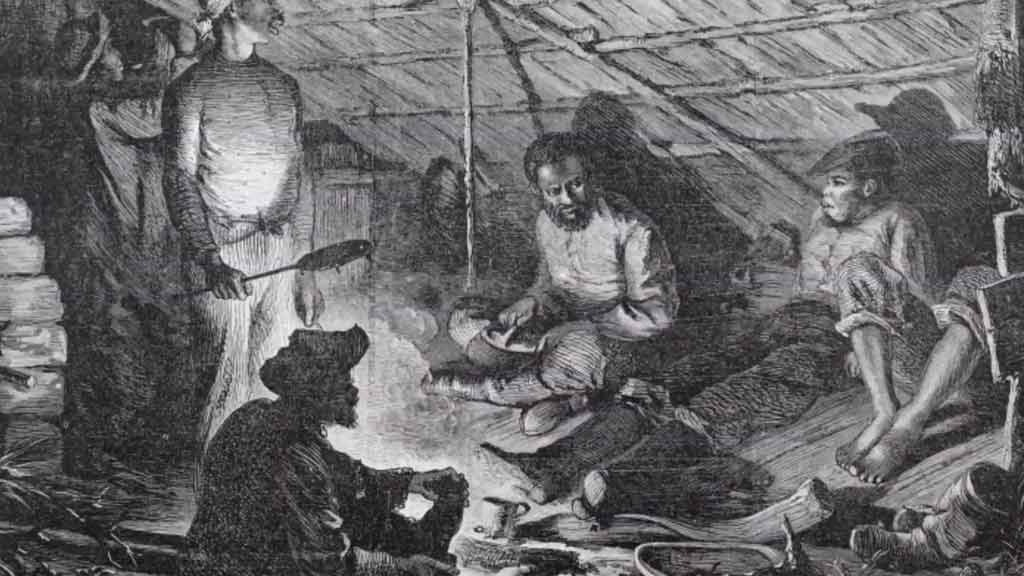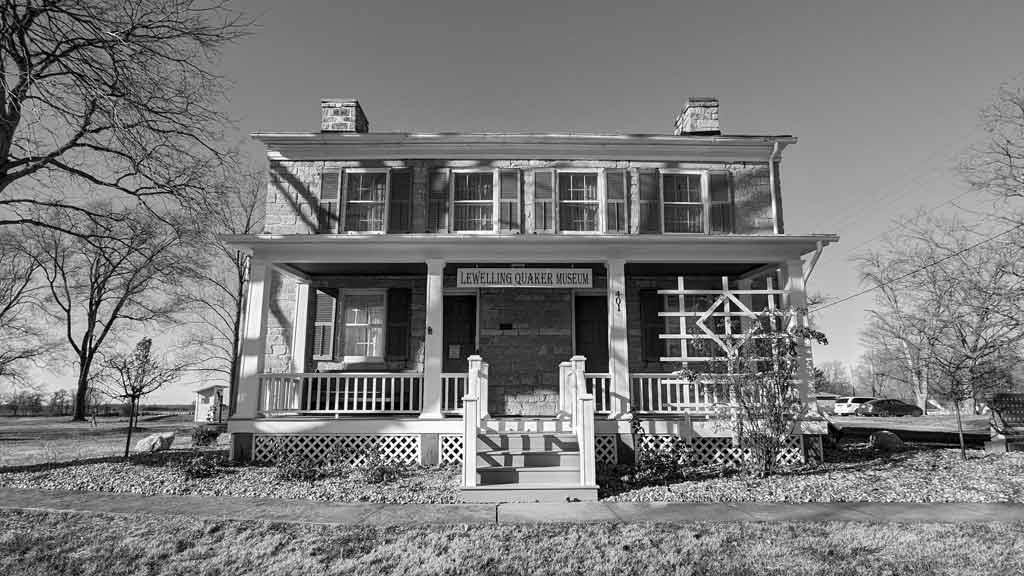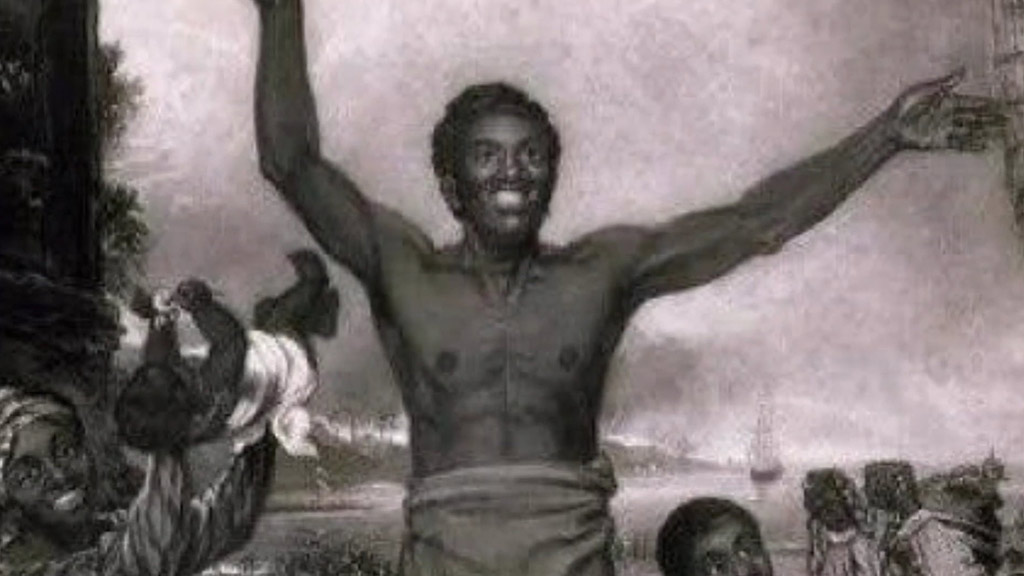Step back in time to Salem, Iowa, a small town steeped in history from the mid-1800s. Despite its unassuming appearance today, Salem played a pivotal role in the fight against slavery.
The Lewelling Quaker Museum unveils a lesser-known chapter in American history, shedding light on the Quaker community’s strong stance against slavery and their involvement in the Underground Railroad.
As you explore Salem’s past, you’ll discover a community that stood against the tide of slavery, offering refuge and guidance to Freedom Seekers on their journey to freedom.
From the Quaker principles of peace to the Underground Railroad’s covert operations, Salem’s narrative intertwines with the broader struggle for equality and justice in America.
Join us on a journey through Salem, Iowa, where history speaks volumes about courage, resilience, and the pursuit of freedom.
The Roots of Salem, Iowa
Salem, Iowa, like many towns in the United States, has a complex history intertwined with the institution of slavery, particularly during the 19th century.
While Salem itself might not have been directly involved in the slave trade or plantation economy, its history reflects the broader societal attitudes and dynamics of the time.
Early Settlement and Antislavery Sentiments

In the mid-1800s, Salem, Iowa, emerged as a significant hub reflecting strong antislavery sentiments.
Early settlers, propelled by religious beliefs and a deep commitment to individual rights and personal freedom, established Salem as a beacon of hope for those seeking liberation.
The town’s foundation was rooted in principles of equality, justice, and the inherent right to freedom, setting the stage for its pivotal role in challenging slavery.
Through their unwavering dedication to these principles, the residents of Salem, Iowa, played a crucial role in the abolitionist movement and stood as a shining example of resistance against the unjust institution of slavery during that tumultuous period in American history.
Involvement with the Underground Railroad
Salem, Iowa, played a crucial part in the Underground Railroad network, offering refuge, support, and sanctuary to Freedom Seekers fleeing the chains of slavery.
The Quaker community in Salem, along with individuals from various faiths, actively participated in the clandestine network, helping escaped slaves find their way to safety in Canada.
Despite the risks of arrest and imprisonment, the residents of Salem persisted in their efforts to assist those in pursuit of freedom, leaving behind a legacy of courage, solidarity, and unwavering dedication to the cause of emancipation.
Key Figures and Locations
During the period of slavery in the United States, Salem, Iowa, played a role in the abolitionist movement and provided refuge for those fleeing enslavement.
While Iowa itself was a free state and did not allow slavery, its proximity to slaveholding states meant that it was part of the Underground Railroad network, a clandestine network of routes and safe houses used to help enslaved people escape to freedom.
The Lewelling Quaker Museum and Its Role

The Lewelling Quaker Museum in Salem, Iowa, stands as a testament to the town’s rich history of antislavery activism.
This museum is part of the National Park Services Network to Freedom, highlighting its significance in the fight against slavery during the mid-1800s.
The museum serves as a reminder of the Quaker community’s pivotal role in the Underground Railroad, offering sanctuary and aid to Freedom Seekers seeking refuge on their journey to freedom in Canada.
The Garretson Family Farm
The Garretson Family Farm, known as East Grove Farms, is a historic landmark in Salem, Iowa, deeply intertwined with the town’s abolitionist history.
This farm has been in the Garretson family for generations, making it the oldest farm in Iowa to have remained within the same family.
Joel C. Garretson, the farm’s original owner, was a key figure in assisting runaway slaves, perpetuating a legacy of activism and support for marginalized communities that continues to resonate through the generations.
Challenges and Threats
Challenges and threats faced by Salem, Iowa, throughout its history have shaped the community and tested its resilience:
Repercussions for Anti-Slavery Activities

In Salem, Iowa, actively engaging in anti-slavery activities carried significant risks. Those who supported the abolitionist movement, such as aiding escaped slaves, faced severe repercussions.
For instance, Ruel Daggs pursued legal action against the Salem Friends under the Fugitive Slave Act, highlighting the dangers individuals advocating for freedom encountered.
Despite the threats and legal battles, the Salem community persisted in their fight against slavery, showcasing immense courage in the face of adversity.
Encounters with Missouri Slaveholders
Encounters with Missouri slaveholders posed a constant threat to the efforts of abolitionists in Salem. The tension between individuals seeking freedom and those attempting to maintain ownership of slaves resulted in conflicts and challenges for both parties.
The resilience of the Salem community in navigating these encounters demonstrates their unwavering commitment to the principles of equality and liberation.
Despite the risks involved, the town remained a stronghold of abolitionist fervor, undeterred by the looming presence of slaveholders from neighboring states.
Legacy of Freedom
Underground Railroad sites like Salem, Iowa, continue to serve as a testament to the unwavering commitment to freedom and equality embedded in the town’s history.
The high level of involvement from the Quaker community in aiding escaped slaves reflects a profound dedication to resistance against the injustices of slavery.
The Quaker Cemetery: A Symbol of Resistance
The Quaker Cemetery stands as a poignant symbol of resistance against slavery, showcasing the courage of those who fought for freedom.
Amidst the graves lies a profound history of individuals who risked their safety and freedom to support the cause of liberation.
Each headstone represents a story of defiance against oppression and a testament to the enduring legacy of those who valiantly opposed slavery.
The resilient spirit of the people buried in the Quaker Cemetery shines through their courageous acts in the face of oppression, leaving a lasting impact on the history of Salem, Iowa during the era of slavery.
Preservation of Historical Sites
The preservation of historical sites in Salem, Iowa, plays a vital role in honoring the town’s legacy of freedom.
By safeguarding locations like the Lewelling Quaker Museum and the Garretson Family Farm, the community ensures that the stories of struggle and triumph against slavery are not forgotten.
These sites serve as tangible reminders of the past, inspiring present and future generations to uphold the values of equality and liberation.
Preserving these historical sites in Salem, Iowa, is essential for honoring the town’s legacy of freedom and resilience in the face of slavery.
These locations, such as the Lewelling Quaker Museum and the Garretson Family Farm, stand as powerful symbols of the town’s history, reminding us of the importance of preserving our past to inspire a future built on equality and liberation.
Frequently Asked Questions
What is the history of Salem, Iowa?
Salem, Iowa has a rich history rooted in antislavery sentiments dating back to the mid-1800s. It served as a sanctuary for Freedom Seekers and runaway slaves through the Underground Railroad.
What are some notable locations in Salem, Iowa?
Notable locations in Salem, Iowa include the Lewelling Quaker Museum, the Garretson Family Farm, and the Quaker Cemetery.
How does Salem, Iowa preserve its historical significance?
Salem, Iowa preserves its historical significance by maintaining sites like the museum and the farm.
Conclusion
You’ve delved into Salem, Iowa’s rich history of antislavery activism, tracing back to the mid-1800s. The town’s defiance of the Fugitive Slave Act and its role in sheltering Freedom Seekers illustrate a community driven by courage and compassion.
Key landmarks like the Lewelling Quaker Museum and Garretson Family Farm serve as testaments to Salem’s commitment to freedom and equality.
The Quaker Cemetery stands as a poignant reminder of those who risked everything for liberation.
By preserving these historical sites, Salem ensures that its legacy of resistance against slavery lives on, inspiring present and future generations to uphold the values of justice and emancipation.
Jaclyn Lowe